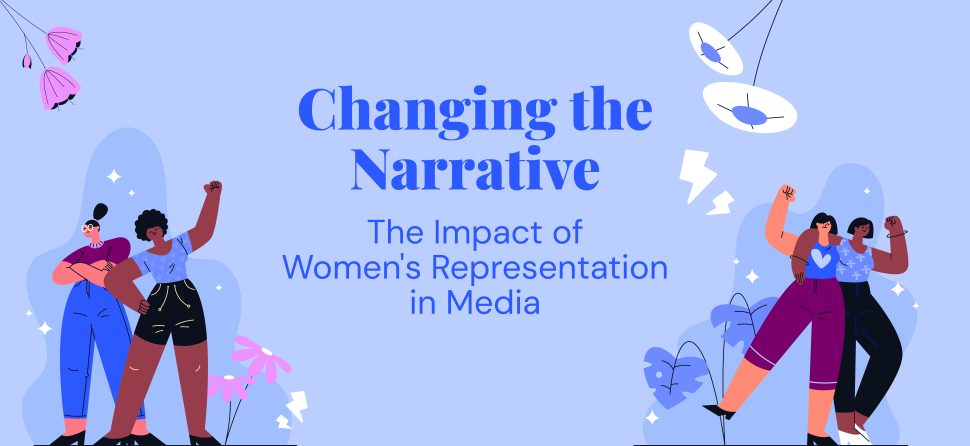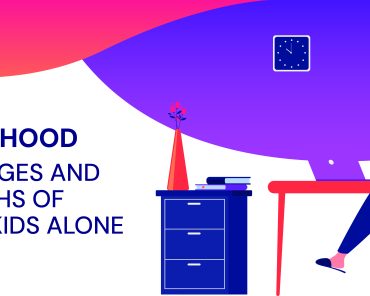By ayoti
Changing the Narrative: The Impact of Women’s Representation in Media
The media plays a huge role in influencing the culture of the society, their ethic and morale, and their goals. Even for decades now, female characters have waged a campaign to ensure they get reasonable portrayals across media categories, including television commercials. Today, the progress is evident, but there are always challenges. The narrative used in representing women in media must be improved in terms of reliability and representation to enhance positive change in society.
The Current State of Women’s Participation
A Mixed Picture of Progress and Pitfalls
In recent years, there has been a trend in stories based on formidable and complex women characters. Wonder Woman, Hidden Figures, and Black Panther are some excellent movies that have portrayed women as intelligent, brave, and capable of being leaders. Television series like The Crown and Killing Eve reveal powerful women with multidimensional characters shaking traditional roles.
However, many types of media continue to reinforce the stereotype, ranging from the hyper-sexualization of female characters to the objectification of women as mere accessories to male characters. A 2021 report by the Geena Davis Institute showed that although women constitute 50% of the world’s population, they only constitute 37% of speaking characters in typical films. These data reveal the work that still needs to be done.
Why Representation Matters
Shaping Perceptions and Aspirations
Representations play a significant role in understanding how people view themselves and others. When women see themselves reflected in the media, they improve their self-confidence and aspirations. Conversely, underrepresentation helps to enforce stereotypical labels, which in turn gives women limited chances and dreams.
Breaking Gender Norms
Positive representation challenges societal norms. Portraying women in authority, science, technology, engineering, mathematics, and other cultures of work erases the stereotype that there are gender-appropriate careers. For instance, female-led tech documentaries like Code: Debugging the Gender Gap help young girls dream about becoming professionals in the field of technology.
Empowering marginalized groups
Women are not a monolithic group. Intersectionality plays a huge role in representation. The media is required to increase knowledge of women of different ethnicities, sexual orientations, classes, and abilities. This has perhaps been useful for elevating a lifestyle of recognition and belonging.
The Role of Media Industries
Changing Roles in Cinema and TV
One of the primary responsibilities of storytellers is to be authentic. This refers to the practice of employing female writers, directors, and producers who bring life experience to their work. Research indicates that women have a positive influence on the portrayal of women if they are in charge of creative teams. Movements such as the 4% Challenge, which calls for hiring more female directors in Hollywood, are in the right direction.
Advertising and Body Image
The advertising industry has been accused of portraying unrealistic beauty standards. Campaigns that stepped up to turn the norms around were Dove’s ‘Real Beauty’ and Aerie’s #AerieReal, which incorporated different body types and rejected airbrushing. All these changes are not only appealing to the consumer but also have a positive impact on the self-esteem of women and girls.
The Power of Social Media
Social media platforms have democratized representation. Women now have a direct channel through which they can share their experiences, fight stereotypical norms and advocate for change. Movements like #MeToo and #BlackGirlMagic exhibit how social networking amplifies women’s voices and redefines cultural conversations.
Changing the Narrative: Strategies for Impact
Invest in Women Creators
Encouraging women to write, direct, produce movies, and act is important. Organizations such as Women in Film and the Sundance Institute’s Women at Sundance program offer mentorship and resources to boost women in the industry.
Promote Media Literacy
Educating audiences to analyze media that thwarts the effects of negative depictions critically. Schools and other community programs can teach coming generations how to fight stereotyping and demand better representation.
Support Inclusive Media
Consumers have the power to demand change. Entertainment programs, including movies, shows, and media campaigns that encourage diversity, make a powerful statement to creators and advertisers.
Hold Media Accountable
Media can be held accountable for harmful portrayals through criticism and reviews. Social media campaigns and public discourse often pressure creators to change their stories.
The Ripple Effect of Better Representation
Inspiring the Next Generation
When young girls see women in different areas, they internalize the belief that they, too, can achieve success. Positive media enlightens the future generation about what they should be like.
Normalizing Equality
It also contributes to changing views on gender equality because it presents it in a balanced way in every aspect of life. Because the media establishes public opinion, actual representation of women can challenge prejudice and foster inclusivity.
Strengthening Communities
Media that empowers women helps create societies of better communing, empathetic individuals. Empowering women is surely going to benefit entire societies.
Conclusion
This process of achieving the goal of bringing justice to women in the media is ongoing. Though there is progress, it has its difficulties. Thus, a different approach is required that needs everyone, from creators to industries to audiences. The accurate representation of women in media can not only reflect society but can also help build a culture of empowered society for women and men alike.
In the words of the TV pioneer Shonda Rhimes, ‘The more we include everyone in, the more stories there are to tell.’ It is not a goal but a necessity for a better tomorrow.





